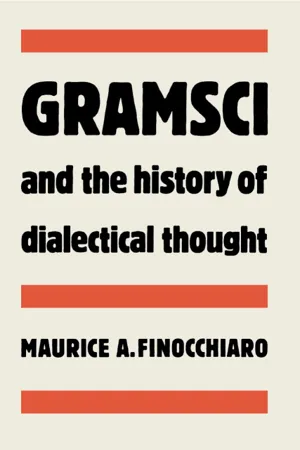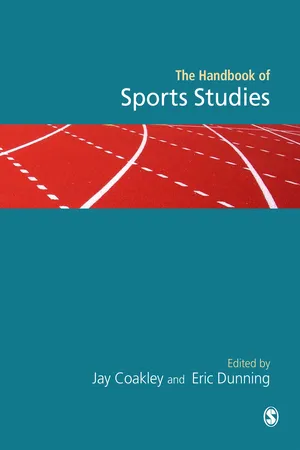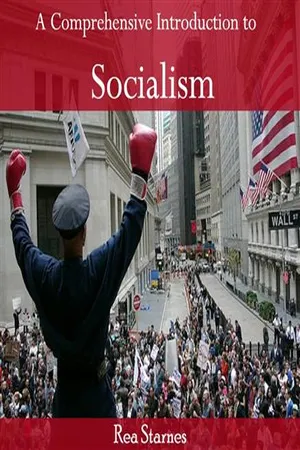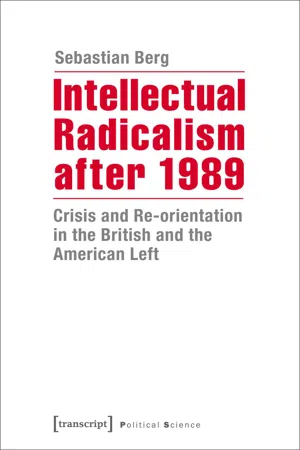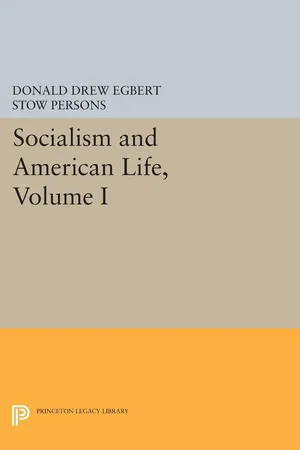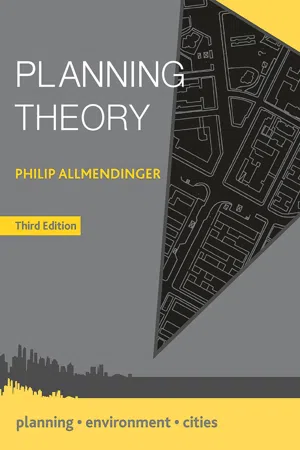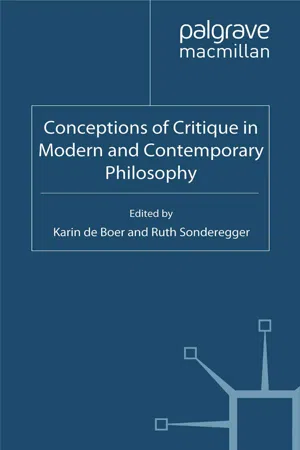Social Sciences
Evaluation of Marxism
The evaluation of Marxism involves critical analysis of its key principles, such as historical materialism, class struggle, and the role of the state. Critics argue that Marxist theory oversimplifies complex social dynamics, underestimates the role of individual agency, and has been historically associated with authoritarian regimes. Proponents, however, emphasize its focus on economic inequality, exploitation, and the potential for societal transformation.
Written by Perlego with AI-assistance
Related key terms
1 of 5
7 Key excerpts on "Evaluation of Marxism"
- Maurice A. Finocchiaro(Author)
- 2002(Publication Date)
- Cambridge University Press(Publisher)
Chapter 8 Gramsci and the Evaluation of Marxism It is now time to find out whether my various inquiries possess more unity than that deriving from the hermeneutical program I announced in the introduction. They are indeed systernatizations and interpretations of four central themes of Gramsci's Prison Note- books, augmented by evaluations of three of these four Gramscian themes; and the evaluations are grounded, respectively, on critical analyses of Croce's philosophy, of Bukharin's sociology, and of Hegel's dialectic. My investigation would acquire additional sig- nificance, however, if it could be related to other problems of current or perennial interest. Because the subject of Marxism recurs in the Notebooks, it seems a promising one to serve as focus for the in- tegration I am seeking. It turns out that this topic will enable me to formulate an overarching interpretation and an overarching evaluation of Gramsci's thought, and that these are relevant to a background problem to which I now turn. THE PROBLEM OF THE Evaluation of Marxism There is little need to belabor the social, political, and cultural im- portance of Marxism. Adapting an aphorism applicable in many contexts, one might say that Marxism is far too important to be left to Marxists. Therefore, the understanding and evaluation of Marx- ism may be regarded as a central problem of our time, and hence a crucial topic for social philosophy. A central fact of the phenomenon of Marxism is that it began as a science and has now become a religion. The scientific origins of Marxism are evident in Marx's claim that "one basis for life and another for science is a priori a lie" 1 and in Engels's talk about the transition of socialism from Utopian to scientific. The religious metamorphosis 2 of Marxism may be seen, for example, in the 231- eBook - PDF
- Jay Coakley, Eric Dunning, Jay Coakley, Eric Dunning(Authors)
- 2000(Publication Date)
- SAGE Publications Ltd(Publisher)
Some of the academic controversies (for exam-ple, Seligman, Simmel, M. Weber) about Marxism show parallels with the debates about Marxism and political and social practice – as outlined before. The social-scientific elabora-tion of Marxist theory and research in the past has almost always been dogmatic and is even nowadays often very orthodox. This can only be explained adequately if we separate out the development of a Marxist theory which on the one hand became increasingly an ideologized general theory used by socialist/communist states and their educational institutions (schools, colleges, universities) – the so-called ‘scientific socialism’ grounded in ‘Marxism– Leninism’ and its variations (for example, Maoism) – while on the other hand, a number of critical and progressive scholars and schools of Marxist theory developed advanced theories and linked these with non-Marxist paradigms and methods, for example, ‘struc-turalist Marxism’, ‘critical theory’, ‘hegemony theory’, ‘critical philosophy’, feminist criti-cisms of Marxist theory, Marxist theories of ‘underdeveloped’ societies (cf. Bottomore, 1979: 125–43). In a nutshell, the academic development of Marxist theory has always been overshadowed by controversies about Marxism as an ideology. 4 This conflict between ideology and acad-emia emerged from a fundamental objective of Marxism, namely the utopian idea of a future communist society. All historical attempts to put socialism and communism into practice had to face the dilemma that Marx did not develop any practical models of communist society. In addition, the socio-economic condi-tions under which communist revolutions occurred never fulfilled the fundamental con-ditions Marx had identified. Some of the revo-lutionary movements did not have widespread support from the people, others took place before the predicted self-destructing crisis of industrial capitalism had set in. - No longer available |Learn more
- (Author)
- 2014(Publication Date)
- Library Press(Publisher)
___________________________ WORLD TECHNOLOGIES ___________________________ Chapter- 2 Marxism Marxism is an economic and socio-political worldview and method of socioeconomic inquiry that centers upon a materialist interpretation of history, a dialectical view of social change, and an analysis and critique of the development of capitalism. Marxism was pioneered in the early to mid 19th century by two German philosophers, Karl Marx and Friedrich Engels. Marxism encompasses Marxian economic theory, a sociological theory and a revolutionary view of social change that has influenced socialist political movements worldwide. The Marxian analysis begins with an analysis of material conditions, taking at its starting point the necessary economic activities required by human society to provide for its material needs. The form of economic organization, or mode of production, is understood to be the basis from which the majority of other social phenomena — including social relations, political and legal systems, morality and ideology — arise (or at the least by which they are greatly influenced). These social relations form the superstructure, of which the economic system forms the base. As the forces of production, most notably technology, improve, existing forms of social organization become inefficient and stifle further progress. These inefficiencies manifest themselves as social contradictions in society in the form of class struggle. Under the capitalist mode of production, this struggle materializes between the minority who own the means of production; the bourgeoisie, and the vast majority of the population who produce goods and services; the proletariat. Taking the idea that social change occurs because of the struggle between different classes within society who are under contradiction against each other, the Marxist analysis leads to the conclusion that capitalism oppresses the proletariat, the inevitable result being a proletarian revolution. - eBook - PDF
Intellectual Radicalism after 1989
Crisis and Re-orientation in the British and the American Left
- Sebastian Berg(Author)
- 2017(Publication Date)
- transcript Verlag(Publisher)
Wright identified three levels of Marxism: class analysis, theory of historical tra-jectory, and emancipatory normative theory (cf. 1993: 17). He explained the strength of this combination: “Marxism attempts to theorize the inherent tendencies of historical change to follow a particular trajectory with a spe-cific kind of directionality” (ibid: 18). Later he pointed to the task of Marx-ist social science “to focus on the ways in which alternative futures are opened up or closed off by particular historical conditions” (ibid: 24). A more detailed definition, emphasising again the historical-philosophical dimension, was provided by Sayers: Marx’s critical method is an immanent and historical one. It is based on the premiss that the grounds for a critical perspective are to be found in existing social condi-tions themselves. [...] Social reality is contradictory. Negative and critical tendencies exist within it, they do not need to be brought from outside in the form of transcend-ent values: they are immanent within existing conditions themselves. Thus Marx’s social theory, so far from undermining his critical perspective, provides the basis on which it is developed and justified. (1994: 68) All these definitions hinted at Marxism’s specificity and strength – its par-ticular combination of ontology, epistemology and strategy – but also at its problems: Marxism was, as Sayers put it, on the one hand ‘scientific’ and on the other not ‘value-free’ (ibid: 67). - eBook - PDF
- Donald Drew Egbert, Thomas D. Bassett, Thomas Bassett(Authors)
- 2015(Publication Date)
- Princeton University Press(Publisher)
The latter question is not without scientific interest, but the attempt to achieve a forthright answer is naturally somewhat hazardous. In any event, it provides a more limited basis of discussion than does a formula that claims to rest upon a scientific appraisal of an actual set of social conditions. The focus of the present treatment is therefore almost exclusively on the Marxian position. By a sort of analytical abstraction, there are four principal fields of sociological inquiry to which Marxian theory is especially relevant: (1) the theory of social change, particularly with respect to "economic de- terminism" or "historical materialism"; (2) the theory of culture, especially with respect to ideologies and knowledge; (3) the sociological theory of economics, that is, the institutional and organizational features of eco- nomic activity; and (4) the theory of social stratification. Since, despite inconsistencies and ambiguities, the Marxian theory as a whole is remarkably integrated, such a division does some violence to 1 In some other respects the distinction is likely to break down under dispassionate analysis. Thus, for example, all socialists share a belief in an eventual "millennium" or Utopia, and, although this is likely to be denied by orthodox followers of Marx, subscribe to certain ethical principles which are held as being not subject to question. S O C I O L O G I C A L A S P E C T S O F A M E R I C A N S O C I A L I S M the Marxian position. Ίη fact, it is not possible to discuss the theory from any of these points of view without some reference to the others. How- ever, the primary focus of attention may shift from one to another aspect of the theory. The discussion here will be mainly confined to the last two of the four fields indicated. These are selected because in the current sociological literature they have been treated less often and less satisfactorily than in the case of the first two. - eBook - PDF
- Philip Allmendinger(Author)
- 2017(Publication Date)
- Red Globe Press(Publisher)
81 4 Critical Theory and Marxism Introduction The essence of critical theory * is to change society rather than simply understand and analyse it. While there are many positions within the broad school of critical theory, particularly those related to the Frank-furt School of thought, we will focus in the first instance upon one main dimension, namely Marxist theory. I go on to highlight later critical the-ory, developed out of the shortcomings of Marxist thought to come to terms with later incarnations of capitalist society and the failure of Soviet-style interpretations to protect and develop individual freedom. The key proposition of Marxist theory is that urban areas and planning cannot be treated as objects of study separate from society. They are produced by that society and, more fundamentally, have an internal logic and function that is primarily derived from the economic structuring forces within that society – in most cases capitalism. Put simply, cities and planning (includ-ing planning theory) are reflections of capitalism and at the same time help constitute it. Such a perspective poses serious challenges to many cherished concepts, particularly in approaches such as those described in the previous chapter. For example, planners often justify planning by reference to the ‘public interest’. According to critical and Marxist per-spectives, there is no such public interest but only an interest of capital that projects or creates a state mechanism such as planning to help it continue and give the impression of public control. This amounts to what Nicholas Low ( 1991 , p. 4) has termed a dissenting theory of planning * Critical theory is often used synonymously with the terms Marxism and political economy. There are dif-ferences between the different schools of thought, most notably the role of positivism and the cultural dimensions of capitalism. - Karin de Boer, R. Sonderegger, Karin de Boer, R. Sonderegger(Authors)
- 2011(Publication Date)
- Palgrave Macmillan(Publisher)
4 1 Methodological and theoretical premises of Marx’s critical project In order to situate the notion of critique within Marx’s theory it is necessary to sketch its most basic theoretical and methodological assump- tions. Given the immense richness and complexity of Marx’s theory, the following will necessarily provide only a very rough outline. Based on his critique of idealism, Marx’s materialism claims that the consciousness of individuals is determined, or conditioned, by their social existence and that the superstructure of society (law, politics, religion, morality, etc.) is determined, or conditioned, by its economic structure, or base. 5 According to Marx, the superstructure is to be explained in terms of its function, namely to contribute to the material reproduction and stabilisation of the existing economic structure. Although this view is compatible with acknowledging the relative independence of the super- structure and its possible influence on economic relations, 6 it already points to the latent economistic reductionism of this model. As Marx emphasises, the social relations that make up the base are ‘indispensable’ and ‘independent of’ the will of human beings. 7 One of the main tasks of a critique of ideology is already implicit in this statement, namely, to make consciousness aware of its dependency on material factors. Marx uses materialism to support his critique of the purported independence of con- sciousness. As he points out with reference to periods of social change: Just as our opinion of an individual is not based on what he thinks of himself, so can we not judge of such a period of transformation Karl Marx: Critique as Emancipatory Practice 103 by its own consciousness; on the contrary, this consciousness must be explained rather from the contradictions of material life, from the existing conflict between the social productive forces and the rela- tions of production.
Index pages curate the most relevant extracts from our library of academic textbooks. They’ve been created using an in-house natural language model (NLM), each adding context and meaning to key research topics.
